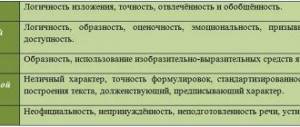OGE. Social science. THEORY according to the codifier. Policy. 5.6. Local government.
5.6. Local government.
PLAN.
- Local government. The essence of the concept.
- Functions of local government.
- Principles of local self-government.
- Forms of population participation in local self-government.
- Powers of local self-government bodies.
- Differences between local self-government and local authorities.
- Legislative foundations of local self-government.
- From the Constitution of the Russian Federation on local self-government.
Local self-government (LSG).
Local self-government is the organization of citizens’ activities, ensuring the population’s independent resolution of issues of local importance and the management of municipal property.
Local self-government is the independent, under its own responsibility, activity of the population to resolve issues of local importance: management of municipal (public) property of a given territory, organization of public utility and socio-cultural services.
Functions of local government.
Functions – main directions of municipal activities, powers.
- Ensuring the participation of the population in solving local affairs (strengthening municipal democracy).
- Creating conditions for the development of the relevant territory.
- Management of municipal property, formation, approval and execution of the local budget, establishment of local taxes and fees.
- Meeting the needs of the population in communal, social, cultural and other services.
- Public order protection.
- Protection of the interests and rights of local self-government enshrined in the Constitution of the Russian Federation.
Principles of local self-government.
- Independence of the population in resolving all issues of local self-government through local self-government bodies
- Diversity of organizational forms of local self-government.
- Organized isolation of local self-government in the system of management of society and the state: local self-government bodies are not included in the system of state power , the structure of local self-government is determined by the population independently.
- Respect for the rights and freedoms of citizens.
- Legality in the organization and activities of local self-government.
- Publicity of local self-government activities.
- Collegiality and unity of command in the activities of local self-government.
- Compliance of LSG powers with material and financial resources (LSG must have the right to sufficient material and financial resources necessary to carry out its functions).
Forms of population participation in local self-government.
1.Direct:
- participation in municipal elections
- participation in local referendums, meetings, gatherings of citizens
- submission of draft normative legal acts of local importance to local self-government bodies, etc.
2.Through local self-government bodies:
- a representative body (council, duma, municipal committee, etc.) is elected by the urban or rural population;
- executive body : mayor, headman, head of administration , etc. (elected directly by the population or a representative body of the local self-government) and the administration (departments of health, education, financial department, etc.)
Powers of local self-government bodies.
Powers of the representative body:
- carries out law-making activities within the scope of powers of local self-government;
- approves the local budget and the report on its execution;
- establishes local taxes and fees;
- approves development programs for the relevant territories;
- exercises control over the activities of the head of the local self-government.
Powers of the LSG executive body:
- manages the municipal economy;
- disposes of property and objects of municipal property;
- develops the local budget and is responsible for its implementation;
- regulates land relations.
territorial self-government bodies , house committees, etc. ) at the place of residence of citizens
Differences between local self-government and local authorities.
| MSU | Local government authority. |
| It is not part of the government system. | Included in the system of state power. |
| Exists on a voluntary basis. | It exists with taxpayers' money. |
| Elected authorities. | In most cases, appointed authorities. |
| They have terms of office. | If appointed, the term of office is not established. |
| Refers to the institutions of civil society. | Refers to government institutions. |
| DECISIONS are binding on all enterprises, institutions, organizations located on the territory of the municipality, as well as local self-government bodies, local authorities and citizens. | |
Legislative foundations of local self-government.
- Constitution of the Russian Federation (Articles 3, 12 and Ch.

- Federal Law “On the General Principles of the Organization of Local Self-Government in the Russian Federation” of October 6, 2003
- Municipal law.
Municipal law of the Russian Federation is a complex branch of Russian law, representing a set of legal norms that consolidate and regulate social relations arising in the process of organizing local self-government.
From the Constitution of the Russian Federation on local self-government.
Article 3, clause 2 of the Constitution of the Russian Federation : “The people exercise their power directly, as well as through state authorities and local governments”
- Local government bodies are not included in the system of state authorities (Article 12);
- The structure of local government bodies is determined by the population independently (Article 131);
- Changing the boundaries of territories in which local self-government is exercised is permitted taking into account the opinion of the population of the relevant territories (Article 131);
- Local government bodies independently manage municipal property, form, approve and execute the local budget, establish local taxes and fees (Article 132);
- The Constitution of the Russian Federation guarantees (Article 133): judicial protection of violated rights of local self-government; Compensation for additional expenses arising as a result of decisions taken by public authorities; Prohibition on restricting the rights of local self-government.
Material prepared by: Melnikova Vera Aleksandrovna.
Social science. Grade 9 Topic: Local government
Topic: Local self-government in CSOs.
Goals:
Introduce the concept, signs, and solutions to issues of local self-government using the example of the Ozersky City District. Develop skills in working in groups when making decisions, the ability to listen to others. Raise active citizens of the country who are ready to take responsibility.
During the classes.
Blitz survey
Is local self-government necessary in Ozersk? Danet Is self-government necessary at school? Danet
Topic, lesson objectives
We discussed the main range of issues relating to the concept of “Civil Society”, its relationship with the state and relations between people in the last lesson. Today we will introduce the concept of local self-government, the signs of local self-government, and the solution of local self-government issues using the example of the Ozersky City District.
Let's remember the definition of “civil society” again
Civil society is a set of non-state social relations and institutions that express a variety of private (individual and collective) interests and needs of free citizens in various spheres of life.
This is not a sphere of life of the country's citizens controlled by the state. Civil society and the state (authorities, army, police, bureaucracy, etc.) never merge into something single. Work on concepts Local self-government The concept of local self-government has relatively recently entered modern domestic political terminology. For the first time, the words “local self-government” as an official legal term appeared in 1990 in the Union Law “On the General Principles of Local Self-Government and Local Economy in the USSR.”
Constitution of the Russian FederationArticle 12
Local self-government is recognized and guaranteed in the Russian Federation. Local government is independent within the limits of its powers. Local governments are not included in the system of state authorities.
In the European Charter
(Strasbourg, October 15, 1985)
on local self-government, paragraph 1, article 3, which states that local self-government means the right and ability of local government bodies to regulate a significant part of public affairs and manage it, acting within the framework of the law, in accordance with their competence and in the interests of the local population.
the federal law
dated August 28, 1995 N 154-FZ
“On the general principles of organizing local self-government in the Russian Federation” (as amended and supplemented on April 22, November 26, 1996, March 17, 1997, August 4, 2000, March 21, 2002)
Art. 2 independent and under its own responsibility activity of the population to resolve issues of local importance directly or through local government bodies, based on the interests of the population, its historical and other local traditions.
one of the forms of exercise by the people of the power that belongs to them; a decentralized form of management, presupposing a certain independence, the autonomy of local bodies, which act as bodies of local self-governing territorial communities. a system of organization and activity of citizens, ensuring independent resolution by the population of issues of local importance, management of municipal property, based on the interests of all residents of a given territory. – Wikipedia is an activity, or rather, amateur activity of citizens.
CONTRADICTION:
In modern Russia, local self-government refers to the institutions of public authority, not civil society, and at the same time denies the state-legal nature of local self-government. Why?
Documentation:
Constitution of the Russian FederationEuropean Charter (Strasbourg, October 15, 1985) Federal Law of August 28, 1995 N 154-FZ “On the general principles of organizing local self-government in the Russian Federation” by-laws Decree of the President of the Russian Federation of October 26, 1993 No. 1760 “On reform of local self-government in the Russian Federation" (as amended on December 22, 1993) Basic provisions of state policy in the field of development of local self-government in the Russian Federation, approved by Decree of the President of the Russian Federation on October 15, 1999 No. 1370 Resolution of the Presidium of the Armed Forces of the Russian Federation dated May 31, 1993 N 5071-I “On establishing the subordination of closed administrative-territorial entities”; Government Decree of June 27, 1996 “On some measures to organize interaction between federal executive authorities and local governments”; Government Decree of the Russian Federation of January 19, 1998 N 65 “On the Federal Register of Municipal Entities in the Russian Federation” and many others. etc. The next source in the hierarchy, which contains the organizational and legal norms of territorial local self-government, is the charters of municipalities. Another source that may affect the powers of territorial local self-government bodies is special contracts and agreements.
The following principles are defined:
1. Independence of local governments.
2. Active participation of the population in solving local issues.
3. The variety of forms of its implementation.
What are the benefits of local government for society?
1. Improving local agriculture ensures the involvement of the population in management and thereby contributes to the further development of democracy.
2. Involving citizens in solving local problems influences the development of their self-awareness and encourages them to be active.
3. Local needs are best known to the residents themselves.
4. Local self-government develops independence, energy and enterprise in citizens; they stop expecting all the benefits from the government, getting used to relying on themselves.
5. Local self-government connects the administration with the people. Along with private interests, a citizen has public ones.
6. Local self-government is a serious preparatory school for statesmen of the highest categories, who through it become acquainted with the social problems of ordinary citizens.
7. The development of self-government opens up opportunities for citizens to take responsibility for solving pressing problems without relying on federal power, which ultimately leads to the formation of civil society.
Work in groups
Each group develops a problem and its solution.
At the end of the lesson there is another blitz survey.
Summarizing.
Summary of a social studies lesson in 9th grade “Family legal relations”
Individual work.Answers on the concepts of “family” and “marriage”: family members are connected by marriage, common life, mutual care, mutual understanding, raising children, and marriage gives rise to mutual legal rights and obligations of the spouses.
Answers: civil marriage, fictitious marriage, church marriage
The class is divided into 4 groups.
Group 1 finds out the difference between these types of marriage and finds a definition of the concept of “registry office”.
Civil marriage is an official, legal marriage (and not actual, as many people think)
A fictitious marriage is a marriage entered into without the intention of starting a family, but only for selfish reasons (for example, to get the opportunity to live in the spouse’s apartment). Such a marriage is declared invalid.
A church marriage is a wedding in a church.
The difference is that only civil marriage, i.e. state registration generates
legal rights and obligations of spouses.
Civil registry office – civil status record.
Group 2 works with the diagram and text of the textbook on p. 144-145 and reveals the conditions and procedure for marriage.
Recording conditions in a notebook
Marriage (mutual voluntary consent, reaching marriageable age, no other marriages, no close relationship, legal capacity) and the procedure for concluding a marriage (joint written application, setting a date for registering the marriage - a month after filing the application, on the day of registration a “Certificate of Marriage” is presented marriage").
Group 3 based on the textbook text on p. 145-147 and the Family Code of the Russian Federation finds out what family legal relations are? What are the rights and responsibilities of spouses?
Family legal relations are social relations regulated by the norms of family law, expressed in the rights and responsibilities of family members and arising from marriage, kinship and some other grounds.
Working with the document: Family Code of the Russian Federation.
Articles about legal relations between spouses. 33-35, 37, 40, 42. Rights of spouses: free choice of surname, occupation, profession, place of residence; joint resolution of issues of family life (maternity, paternity, upbringing and education of children, etc.) Responsibilities of spouses: build relationships based on mutual respect and mutual assistance, promote the well-being of the family, take care of the well-being and development of their children.
The right to personal (separate) and joint (common) property. Personal property is property acquired before marriage, received as a gift or inheritance during marriage, and items for personal use, with the exception of luxury items. All other property acquired by the spouses during marriage is recognized by law as their common joint property and is called the legal regime of the property of the spouses.
Writing in a notebook.
The contractual regime of the property of the spouses is an agreement during the marriage or before its registration, which can change the legal regime of the property (certify by a notary)
Group 4 based on the textbook text on p. 147-149 and the Family Code of the Russian Federation recognize the legal relationship between parents and children.
The birth of a child is certified by a “Birth Certificate” issued by the Civil Registry Office, which indicates the full name, date of birth and parents. Parents have the right to raise children (Article 63). They must provide the child with a bright childhood and ensure that he receives a basic general education. Parents have the right to support their children and protect their interests, as well as support them (Article 64).
A child has the right to live and be raised in a family, to receive care and proper education from his parents (Articles 54, 56) . The child has the right to express his opinion (Article 57) when resolving any issue in the family that affects his interests. The child has the right to communicate with both parents, grandparents and other relatives (Article 55) . Has the right to maintenance from his parents.
10 years – taking into account the child’s opinion must be mandatory.
14 years old – a child can go to court.
18 years is the full age of the child, at which full legal capacity begins.
The results of all groups are presented as a cluster.
Lecture notes: Local government: concept, system, principles of implementation
State policy in the field of development of local self-government is based on the CRF, the European Charter of Local Self-Government, generally accepted principles and norms of international law, and international treaties of the Russian Federation.
Local self-government (one of the most important democratic principles of organization and exercise of power) is the right and ability of local self-government bodies (LGB) to regulate and manage a significant part of public affairs, acting within the framework of the law, in accordance with their competence and in the interests of the local population.
Recognized and guaranteed by the KRF, the independent activity of the population to resolve issues of local importance directly and through compulsory health insurance based on the interests of the population. Compulsory medical insurance is not part of the system of government bodies. Local self-government ensures that the population independently resolves issues of local importance (issues of direct life support for the population of the municipality), ownership, use and disposal of municipal property (the structure of compulsory health insurance is determined by the population independently).
Local government system: city, district representative bodies; city, district executive bodies (administration); volost, rural and settlement elected bodies; bodies of territorial public self-government (public self-government committees, street, house committees).
Local self-government is exercised by citizens through: referendum, conference, meeting (gathering), elections, other forms of direct expression of will, through elected local self-government bodies. Elected and other local self-government bodies are legal entities in accordance with the charter of the municipality (persons performing service are municipal employees).
Compulsory medical insurance includes: elected bodies formed in accordance with the Federal Law “On the general principles of organizing local self-government in the Russian Federation; other bodies formed in accordance with the charters of municipalities. Local self-government bodies are endowed with their own competence in resolving issues of local importance.
A representative LGU consists of deputies (the number of members is determined by the charter). Competence: approval of the local budget and report on its execution, adoption of development plans and programs, establishment of procedures for the management and disposal of municipal property.
The charter may provide for the positions of the head of a municipal entity (elected official), as well as other elective positions of local government officials. The head and other elected officials are directly accountable to the population and to the representative body of local government. The charter may provide for other bodies and officials of local government. The head and other officials may exercise their powers on an ongoing basis.
A deputy, a member of an elected local government body, or an elected official are guaranteed conditions for the unhindered and effective exercise of powers, protection of rights, honor, and dignity. The term of office is at least 2 years.







